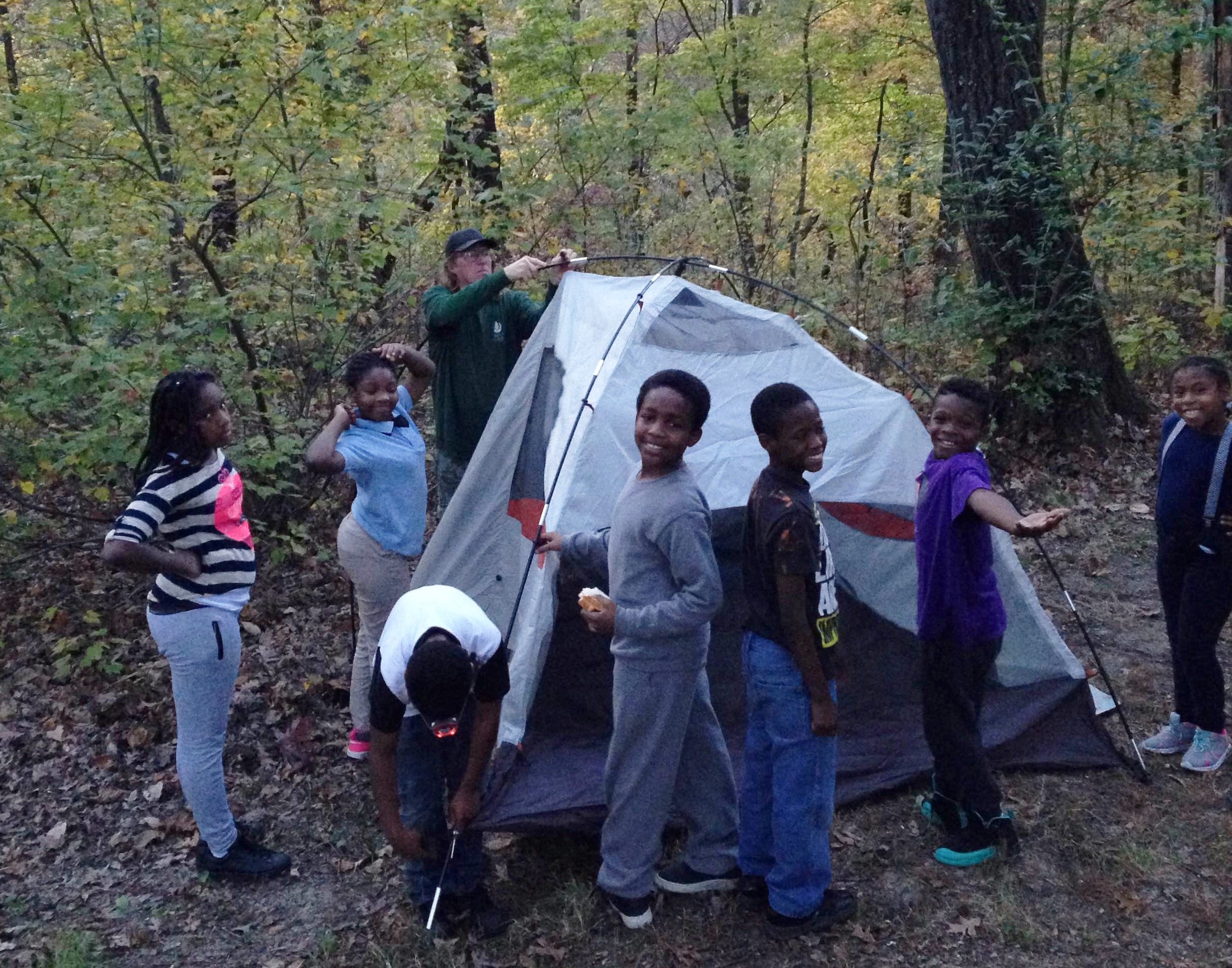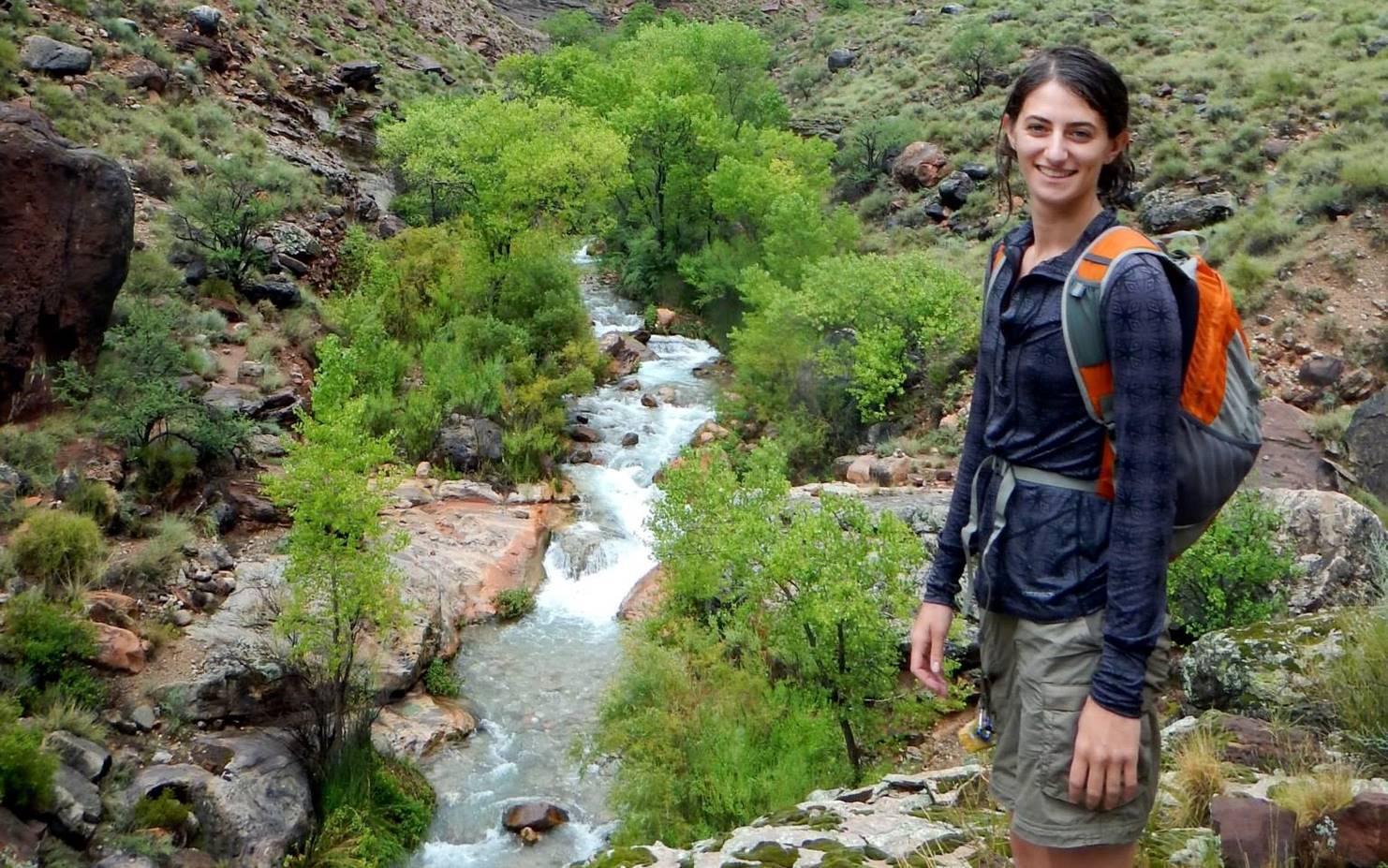Parents pass so much down to their children. Brown eyes, nail-biting, a distinct laugh. Megan Conn counts nature and outdoor exploration as just one of those things she got from her dad.
“I was kind of born into it, you know?”
When Megan’s father, a former ICO youth leader with the Bay Area’s ICO group, planned outdoor excursions she was almost always included.
Her childhood was an adventurous one -- full of wild spaces and wild ideas. She learned to camp, to hike, and to whitewater raft all before the age of 13. The outdoors, she discovered, held beauty and excitement, and sharing in the enjoyment (as she so often did with her father and other ICO participants and leaders) only heightened the experience.
"I grew up believing that the natural world belongs to everybody.”
As Megan grew older she came to see that the belief she held in equity and inclusion was not always reflected in the experiences she had outdoors. “These opportunities should be available to everyone but the reality is that they’re not. That’s why ICO does what it does.”
ICO “does what it does” in cities all over the country. This meant that when Megan moved away from home to study and later work in St. Louis her relationship with the program did not have to end. In fact, it grew stronger. Megan took a leadership position as Eastern Missouri ICO chair, and once there the discrepancies between communities privileged with green space access and communities that have been marginalized became that much more pronounced.
“Being involved in that way I really was able to see even more clearly how big the need is for a program like ICO and also how urgent it is. Every trip—every group—matters, but there are still thousands of kids that don’t get to go. We’ll never be able to get everybody out there.”
St. Louis’ ICO chapter is a small group--it currently works with about 3 to 4 youth groups at a time. These groups, organized through partnerships with schools, a women & children's shelter, and a church, send anywhere from 5 to 10 kids on about 10 trips to parks, campsites, and recreation areas per year.
Megan sees the opportunity to extend the program’s reach a bit further. “There is definitely potential to grow the group. During the past year we made some progress towards building new agency partnerships and recruiting new volunteers.”
In forming these relationships one thing that Megan says she has consistently encountered is a great deal of passion.
“Everyone that comes into the program is enthusiastic. They have ideas and motivations that they bring with them. A lot of people want to educate the next generation of environmentalists and advocates. Obviously that’s an important part of what Sierra Club does.”
When she leads outings herself, however, teaching is not her main objective.
“One thing that I’ve learned on these outings is that I need to be a good listener. I want to see where everyone is coming from first to find out what they need as opposed to imposing a set experience on them.”
For Megan, the outdoors was the setting for family gatherings and old friends’ reunions. It was just as much a fixture of her life as a family member might be. “So when I take a group of participants out I focus on getting comfortable outdoors, feeling as though it’s your space and it’s yours to explore, that sort of thing. You have to build your way up.”
Her approach highlights two important aspects of human-nature relationships--familiarity and comfort. Megan grew up exploring, surrounded by nature and outdoor enthusiasts. She didn’t have to do any exploring on her own to figure out her relationship to the environment--she had guidance. She makes it a point to try to facilitate the experience of a similar familiarity and comfort for others.
“My favorite part about leading trips is being able to see participants blossom…It’s really all about letting them develop that confidence.” 
One of her most memorable experiences with ICO, a recent overnight camping trip, was possible because of this exact transformation.
The outing, a small camping trip in a local park with fourth grade students, marked the first time any of the participants had been on an overnight adventure. “We got to spend a lot more time out there than usual--when we went on outings before they were mostly morning hikes. This time they got the full experience.”
It was, in many ways, a typical camping trip. They packed their days with activities and the kids were game for all of them. “They learned how to set up tents, we figured out how to spot spiders at night with flashlights, they tried cooking over a campfire, we hiked...I swear I did not sit down once the entire time.”
But the outing held another purpose--one that set it apart from the average excursion. One of their classmates, a nine year old girl, had been shot and killed the year before when a bullet broke through her mother’s bedroom window. Megan organized the outing with solace in mind.
“I had to. I wanted to make sure they knew that we cared about them.”
So she turned to a space that she and many researchers know offer care, comfort, and a sense of belonging: the outdoors.
Megan had been working with this group of students for a year, and the trip reflected the culmination of the relationship that they’d built together as well as the relationship they’d built with the outdoors. The work that they had put in together over the course of the year allowed them to turn the outing into a retreat--an opportunity to step away and into a home away from home.
By the end of the year, she said, “They felt at home running down a trail, or sitting on the riverside. They were like ‘Okay, this is my place, and I like it here.”
____________________________________________________________________________________
Inspiring Connections Outdoors contributes to the creation of more equitable outdoor environments by connecting youth from communities historically marginalized in the outdoor and environmental movement with outdoor activities that promote wellness, connection, and leadership. If you’d like to be part of the ICO family you can find information about how to get involved here or you can contact the team via email (ico.stlouis@gmail.com). Follow all of the adventures on Facebook!
